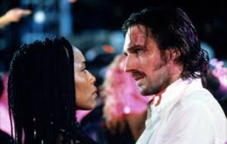You Must Remember This
Are we entering a world in which to “look at” something is to “record” it? Forever?
The thought crossed my mind about three or four years ago with the prototype of Google Glass—which has the ability to take photos and record 720p HD video from a device shaped like regular glasses. But, as it never really caught on, and was much criticized over privacy and safety concerns, I paid it no mind until one day when I walked into a 7-Eleven store.
I have never smoked cigarettes. But I take care of some people who do and who cannot get to the store on their own. That is why, one day, I crossed the threshold of the local 7-Eleven to find that the management, in protecting minors from cigarettes, had crossed the threshold from cautious to insane. Pasted to the counter was a sign saying, not that they check ID, but that they scan ID prior to cigarette sales!
 Of course, says the sign, we do not “store” the information. Think about that a minute. If they do not store the scanned ID information, what is the point of scanning it? Can’t the cashier just “look at” your ID to determine your age-eligibility to purchase a legal weed? Or, alternatively, does management not trust its employees to be diligent gatekeepers?
Of course, says the sign, we do not “store” the information. Think about that a minute. If they do not store the scanned ID information, what is the point of scanning it? Can’t the cashier just “look at” your ID to determine your age-eligibility to purchase a legal weed? Or, alternatively, does management not trust its employees to be diligent gatekeepers?
Then I thought about it a minute. We all rely on memory to get along in life, make connections, enjoy the present by engaging with the past. Remember the 2000 film Memento? The main character suffers from a form of amnesia (anterograde amnesia) that prevents him from forming new memories. His life becomes virtually impossible to live without those newly formed memories. Forgetting a name or a face (and I do it a lot) can be socially awkward to say the least.
 Now consider the opposite situation. Remember the 2011 episode of “House, MD” (7:12) in which the patient with a perfect memory suffers problems with family relationships? Or the android named Data in the long-running TV series, “Star Trek: The Next Generation” (1987-1994), who is incapable of forgetting anything? Is total recall really something to be desired?
Now consider the opposite situation. Remember the 2011 episode of “House, MD” (7:12) in which the patient with a perfect memory suffers problems with family relationships? Or the android named Data in the long-running TV series, “Star Trek: The Next Generation” (1987-1994), who is incapable of forgetting anything? Is total recall really something to be desired?
Think of how much we actually rely on people forgetting—or at least remembering imperfectly. You create a lot of memories in life, especially about the boring stuff, that are just brain clutter. It’s useful to be able to forget: the traumatic stuff, obviously, but also the useless stuff. As Lornette “Mace” Mason said to Lenny Nero in the 1995 film Strange Days, “Memories are meant to fade. They’re designed that way for a reason.” Could society function if everybody remembered everything about everything?
 Now comes the “brave new world” in which to see it is to record it is to remember it. I know that Google Glass received a lot of criticism and some legislative action over privacy and safety concerns. And production models are currently pretty obtrusive. But how long before they (or something like them) are not? Will society adapt when there is no distinction between public and private? How will people learn to behave when everything we do and say becomes a movie, recorded and stored by anyone at any time?
Now comes the “brave new world” in which to see it is to record it is to remember it. I know that Google Glass received a lot of criticism and some legislative action over privacy and safety concerns. And production models are currently pretty obtrusive. But how long before they (or something like them) are not? Will society adapt when there is no distinction between public and private? How will people learn to behave when everything we do and say becomes a movie, recorded and stored by anyone at any time?
It’s enough to make you take up smoking.

